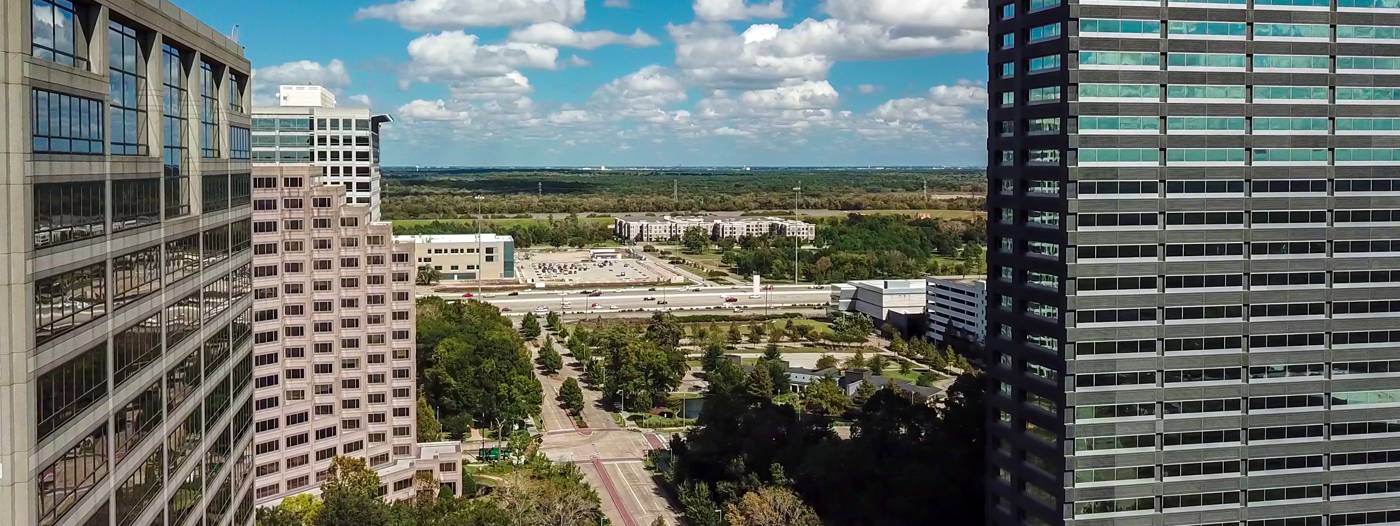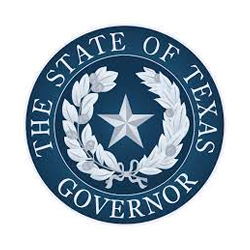Incentives, Financing and Taxes
The Katy Area Economic Development Council is here to help you. Our staff has over 40 years of experience in economic development. Let our experts show you the variety of options you’ll have to choose from. The Katy area and the state of Texas have created dynamic and growing economies with the help of a pro-business tax structure and pro-business climate. Some key features of the tax and business environment include: no state income tax on persons or businesses, no local income or occupational taxes on persons or businesses, a low franchise tax, a strong tort reform law and Employment-At-Will and Right-to-Work laws. Katy Area EDC works diligently to aid companies in exploring tax incentives and maximizing monetary efficiency for relocations and expansions. Below please query the type of incentives of interest from the pull down menu or search button which include Covid, Goodwill, Grants, Loans, Permitting, Rebates, Tax, Taxes, Training and Workforce.
The Katy Area EDC has several initiatives available to support your company’s workforce needs. The following summarizes the support that may be available to companies that choose to locate to
CenterPoint Energy's Data Center Energy Efficiency Program (DCEEP) assists data center owners and operators with reduction in energy costs through practical technical assistance and cash incentives, while recognizing the importance
CenterPoint Energy Offers free assistance to customers interested in replacing diesel or propane forklifts with electric forklifts.
Program Offerings:
Calculate the potential financial and emission savings specific
CenterPoint Energy, the local distribution company for Katy electricity, offers several grant/rebate programs for companies that implement energy efficiency programs and/or equipment. These programs are available to small and large
CenterPoint Energy’s Commercial Load Management Program can reduce summer peak demand and improve the energy efficiency of large commercial and industrial facilities.
Program is available to non-residential distribution,
The City of Houston: Chapter 380 Program of the Texas Local Government Code provides financial assistance in the form of loans and/or performance-based grants to qualified businesses for eligible projects
Municipality Agreements
Chapter 380 of the Local Government Code authorizes municipalities to offer incentives designed to promote economic development such as commercial and retail projects. Specifically, it provides for
Type A and B Economic Development Corporations Overview
The Development Corporation Act of 1979 gives cities the ability to finance new and expanded business enterprises in their local communities
For historic structures, the City of Houston may grant a tax exemption to qualified property owners who improve designated historic properties. A property owner who has been denied a Certificate
The primary focus of an FTZ is to allow companies to reduce or eliminate duties and tariffs until such time as they are shipped to other markets. No duty is
The Fort Bend County Commissioners Court has approved a small business emergency grant program to assist businesses impacted by Covid-19. Additional funds were approved April 27, 2021 to provide financial
Fort Bend County has established a Disadvantaged Business Enterprise (DBE) Program [PDF] in accordance with regulations of the U.S. Department of Transportation (DOT), 49 CFR Part 26.
To be
The Business Loan Fund helps finance new or expanding small businesses when traditional funding isn't available or isn't enough. All applicants must have applied for funding from a private lending
Leadership In Energy And Environmental Design (Leed®) Tax Abatement:
If the owner of new commercial construction has registered with the U.S. Green Building Council ("USGBC") seeking LEED Certification, then
Texas legislation (Tax Code Chapter 312) allows local jurisdictions to offer incentives to attract new industries and to encourage the retention and development of existing businesses through property tax exemptions
Industrial Revenue Bonds (IRBs) provide a source of tax-exempt or taxable bond finance for projects involving significant private activity that promote new and existing businesses, encourage employment, and expand the
Texas offers a loan program for eligible efficiency technologies. The “LoanSTAR” program is available to schools, hospitals and local governments. The low interest loans are capped at a $5 million
Freeport exemption is available for various types of goods that are detained in Texas for a short period of time. Freeport property includes goods, wares, merchandise, ores, and certain aircraft
This exemption applies to items in a companies inventory of last year (if applicable) that: (1) were acquired in or imported into Texas to be forwarded to another location (2)
The Lone Star Workforce of the Future Fund (LSWF) is a program to increase the supply of qualified workers for entry-level to mid-level jobs in high-demand occupations. In doing so,
Offering transportation benefits to employees is an effective way to recruit and retain top talent-a critical strategy in today's difficult business environment-and gives you a tax break, too. The 1998
The business (or group of businesses) selects the public community college, technical college, or private entity that will provide the custom training and specifies the kind of training, curriculum, etc:
Seventy-five years ago, apprenticeships were limited to construction and skilled trades. Today, they span over 1,000 occupations, including healthcare, IT, advanced manufacturing, transportation, logistics, and energy. This expansion into non-traditional
Standard 7(a)
Maximum loan amount
$5 million
Maximum SBA guarantee %
5% for loans up to $150,000 and 75% for
The U.S. Small Business Administration 504 Certified Development Company Loan program conserves your working capital by requiring only a 10 percent borrower contribution.* If you do not qualify for conventional
The federal government's goal is to award at least 5 percent of all federal contracting dollars to small disadvantaged businesses each year.
Content
Program benefits
8(a)
Featuring a simplified process, these loans are deleivered by experienced lenders who are authorized to make credit decisions for the SBA. These can be term loans or revolving lines of
The HUBZone program fuels small business growth in historically underutilized business zones with a goal of awarding at least three percent of federal contract dollars to HUBZone-certified companies each year. The
What is a Microloan?
Smaller-size loans of up to $50,000 provided through SBA funding intermediaries.
The microloan program provides loans up to $50,000 to help small businesses and certain
This program is administered by The Texas Workforce Commission (TWC) and provides financial support for training to help employers build their skilled workforce by collaborating with a community college (Houston
Through the Texas Workforce Commission (TWC) Skills for Small Business program, up to $2 million from the Skills Development Fund is dedicated to the backbone of Texas' business community—our small
Qualifier for State Sales Tax Exemption for Qualified Data Centers: a "data center" is a facility of at least 100,000 square feet in Texas that has been, or will be,
Surety bonds help small businesses win construction, supply, and service contracts by providing a cusotmer with a guarantee the work will be completed. Many contracts require surety bonds, which are
The Katy Area EDC can help provide a talent pipeline through sourcing, recruiting, and prescreening to find the right fit for your position. Through our various systems and partners, we
COVID-19 Update: The Business Permit Office has published a list of helpful FAQs that address common permitting and licensing questions. The Business Permit Office assists businesses in navigating Texas’ permitting, licensing
Economic Development & Diversification In-State Tuition for Employees is a program that allows employees—and those employees’ family members—of a qualified business considering a relocation or expansion of its operations in
Texas Enterprise FundAdministered by the Texas Economic Development Bank, this grant program provides funding to projects that realize a significant rate of return of the public dollars being used for
The Texas Enterprise Zone Program (EZP) is a state sales and use tax refund program designed to encourage private investment and job creation in economically distressed areas of the state. Who
House Bill 500 provides authorization for a company to deduct moving expenses from their apportioned margin while calculating their franchise liability. Companies must relocate their principle place of business from
WHAT IS PACE? Property Assessed Clean Energy (TX-PACE) is a proven financial tool that incentivizes Texas’ property owners to upgrade facility infrastructure with little or no capital outlay. Approved by State
The TexasTax Relief for Pollution Control Property Program (Prop 2) is responsible for determining whether a facility uses certain property or equipment, in whole or in part, for pollution control
The Product Development and Small Business Incubator Fund (PDSBI) offers long-term, asset-backed loans to product development companies and small business incubators/accelerators located in Texas. The loans finance the development and
Texas property tax code permits a 100% exemption on the appraised value of solar, wind or biomass energy devices installed or constructed for the production and use of energy on-site.
The Texas Property Tax Code extends a franchise tax exemption to manufacturers, sellers, or installers of solar energy devices. The state also permits a corporate deduction from the state’s franchise
Administered by the Texas Comptroller of Public Accounts, this program reinstates franchise tax credits for companies conducting qualified research and development (R&D) activities within the state. The new law provides Texas
Labor for construction is not taxable for completing unfinished structures (construction), constructing new structures and for increasing the production capacity of a manufacturing or processing production unit in a petrochemical refinery or
Texas companies are exempt from paying state sales and use tax on electricity and natural gas used in manufacturing, processing, or fabricating tangible personal property. The company must complete a
Leased or purchased machinery, equipment, replacement parts, and accessories that have a useful life of more than six months, and that are used or consumed in the manufacturing, processing, fabricating,
The TSBCI Program supports small business growth and helps create new jobs through increased access to small business funding. The program assists all small businesses but focuses on traditionally marginalized
The US CDFI New Market Tax Credit Program (NMTC Program) aims to break the cycle of disinvestment by attracting the private investment necessary to reinvigorate struggling local economies. The NMTC
This is a federal income tax benefit administered by the U.S. Department of Labor, for private, for profit employers who hire from target populations. The US Work Opportunity Tax Credit
The purpose of program is to alleviate poverty and increase economic activity and employment in rural communities. Under the program, loans are provided to (intermediaries) like Katy Area EDC for
Formerly known as the USDA Business & Industry Guaranteed Loan Program, the USDA OneRD Guarantee Loan initiative is designed to assist credit-worthy businesses located in rural, unincorporated areas in obtaining
The federal government's goal is to award at least five percent of all federal contracting dollars to women-owned small businesses each year.
Content
WOSB and EDWOSB



